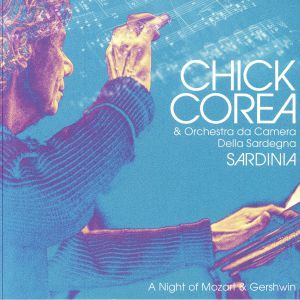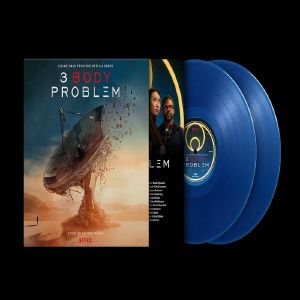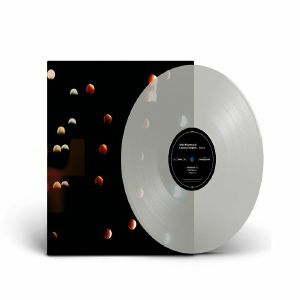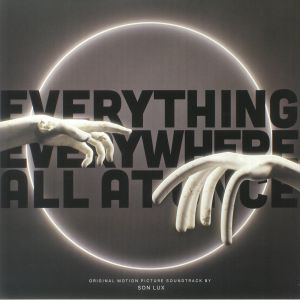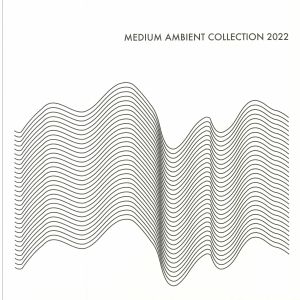Today Only: Modern Classical sale vinyl
Modern Classical vinyl at low prices, today only!
1~17/17(ページ1/1)の商品
Hold Your Breath: The Ice Dive (Soundtrack) (limited clear vinyl LP)
Cat: TPLP 1755. Rel: 26 Jan 23
in stock $20.07
Sardinia: A Night Of Mozart & Gershwin (2xLP + booklet)
Cat: LPCND 33111. Rel: 21 Mar 24
in stock $25.47
Cat: STREP 064. Rel: 12 Apr 23
Review: With an artist name like Dali Muru & The Polyphonic Swarm, and an EP title of Murmer of The Bath Spirits, the fact at least part of this record features a narrative about spiritual awakenings in bath houses, set to an eerie, atmospheric ambient soundscape, will surprise very few people. A 15-minute trip into the ether, noises and tones are as wet as they are warm, and the experience like heading out to uncover a faery land mystery.
Things get a little less specific on the appropriately christened 'Track 2', which moves us on from the dreamy quiet into a place that's more forceful, purposeful, harsh, perhaps even darker. Hypnotic loops set above staccato beats, grabbing hi hats and other elements as the track grows in ear worm qualities with each second.
… Read moreThings get a little less specific on the appropriately christened 'Track 2', which moves us on from the dreamy quiet into a place that's more forceful, purposeful, harsh, perhaps even darker. Hypnotic loops set above staccato beats, grabbing hi hats and other elements as the track grows in ear worm qualities with each second.
in stock $12.83
Pluperfect Mind (LP + MP3 download code in spot-varnished sleeve)
Cat: LPNNA 142. Rel: 10 Dec 21
in stock $16.04
Review: The Delphina James Steel Ensemble's Play Ludo is the follow up record to Pan Machine, a well received and critically acclaimed long player. This one is another unique proposition with rich steel band sounds taking on modern classical compositions. They are all lush in their arrangements, with plenty of moments of intimacy next to rousing melodies. Some tunes shimmer with a wintry chill and others are warm and diffuse like a hot summer's day. Another original work by this fine band.
… Read morein stock $13.97
3 Body Problem (Soundtrack) (limited 180 gram audiophile translucent blue vinyl 2xLP + insert + stickers)
Cat: MOVATM 417C. Rel: 31 May 24
in stock $43.13
in stock $23.88
Dragon Ball Z: Best Collection (Soundtrack) (limited gatefold orange vinyl 2xLP)
Cat: DV 12819. Rel: 22 Feb 24
Review: A selection of fifteen pieces from the soundtrack of the cult anime Dragon Ball Z, on a limited 2xLP edition, fully licensed, including the main opening track 'CHA-LA HEAD-CHA-LA'. This soundtrack accompanies the anime's key moment in which Dragon Ball Z resumes five years after Son Goku's wedding. Radditz, a mysterious warrior, arrives on Earth to find Goku, who learns that he comes from a planet of warriors from a planet of warriors, of which only four remain. The plot is based on a succession of increasingly strong opponents to be fought, but there's often a quest or travel motif that adds interest beyond the duels. All this, and more, is bolstered by this electrifying soundtrack edition.
… Read morePlayed by: Juno Recommends Experimental
in stock $50.69
Selene (limited cloudy white vinyl LP)
Cat: TRR 428LPC1. Rel: 30 May 24
in stock $21.13
Vanishing Points/A Cappella (LP + booklet + MP3 download code)
Cat: UW 38LP. Rel: 10 Nov 23
Vanishing Points
A Cappella
in stock $20.92
L(oo)ping (limited LP)
Cat: IF 1085LP. Rel: 23 Jun 23
in stock $20.75
Le Choc (Soundtrack) (remastered) (gatefold LP)
Cat: RGOR 04. Rel: 01 Dec 22
in stock $20.27
Professor Balthazar (Soundtrack) (gatefold LP)
Cat: FOX 010LP. Rel: 25 Sep 23
Review: If you're unfamiliar with Yugoslavia-era Croatian animated children's entertainment than where have you been? And, please, allow us some introductions. Produced for 11 years, between 1967 and 1978, Professor Balthazar was a kids show about a benevolent genius scientist (the titular star) who helps those around him overcome various problems, often through the use of invention, using a magical machine to come up with innovative designs to solve any issue. While there is certainly subtext to read into - TV has always been a bastion of propaganda, not least behind the Iron Curtain of yore - trying to pinpoint the location or origin here isn't easy, if you don't already know. No character speaks a discernible language, making this resolutely universal storytelling. Similarly, the soundtrack, by Balkan master Tomislav Simovic, is relentlessly shapeshifting and expressive, and impossible not to fall in love with, no matter where you grew up.
… Read morein stock $30.25
Everything Everywhere All At Once (Soundtrack) (limited gatefold black & white vinyl 2xLP in embossed spot-varnished sleeve)
Cat: A24M 005LPC1. Rel: 03 Aug 23
As She Connects To Lives She Could Have Led, The Real Challenge Is Making Sense Of This Life Here & Now (19:02)
She Fights With Incredible Martial Arts, But How Do You Fight The Meaninglessness Of Infinity? (18:47)
Review: Son Lux grew from Ryan Lott's solo project into a fully-fledged band with Ian Chang and Rafiq Bhatia, and their star has steadily ascended from indie hip-hop territory to creating this Oscar-nominated soundtrack for one of the most talked-about films of the past year. It's a sure sign Son Lux are in the premier league now, and following the release of the soundtrack comes the official score, presented across four extended suites taking up whole sides of vinyl. This limited gatefold black and white pressing of the album gives the striking sonics the release they deserve.
… Read morein stock $24.50
Maurice Ravel: Valses Nobles Et Sentimentales Orchestral Version From The Suite For Piano - Epilogue: Lent (4:00)
in stock $50.20
Review: Leading Japanese ambient label Astrollage herald a new year with a two-part compilation which comes in contrasting installments. Medium Ambient Collection 2022 (White Version) seems to have landed two years behind schedule, but what does it matter in the time-shifting surrounds of delicate beatless sonics. There's a reliable focus on cascading sequences and slow-release drones across the exquisite pieces on this double-vinyl release, which features outstanding work from artists including H. Takahashi, Shohei Takata and Kazuma Okabayashi. If you prize refined ambience above all else, this release will more than meet your expectations.
… Read morein stock $32.84
in stock $16.98
1~17/17(ページ1/1)の商品

 USD
USD






